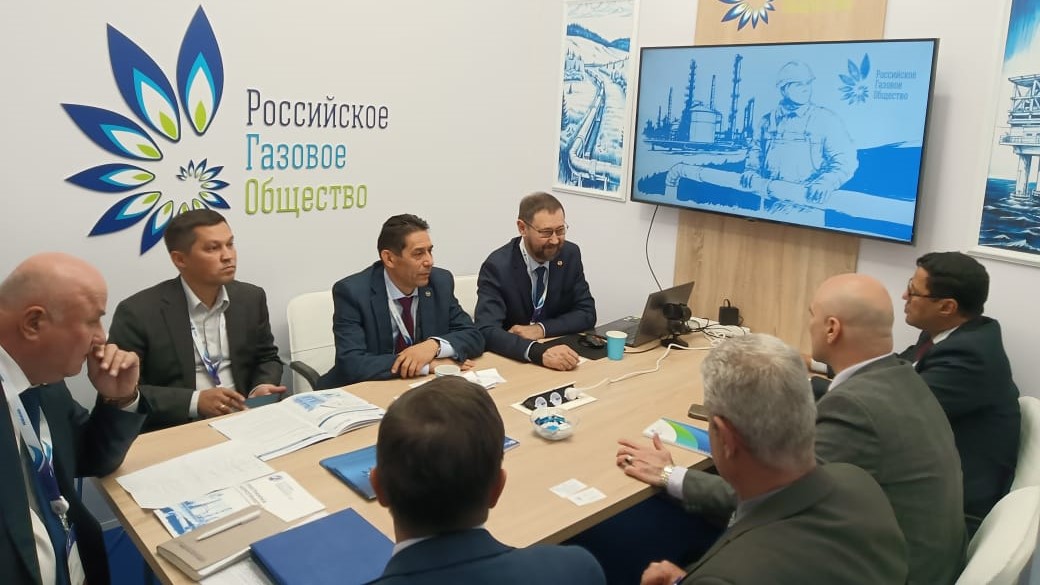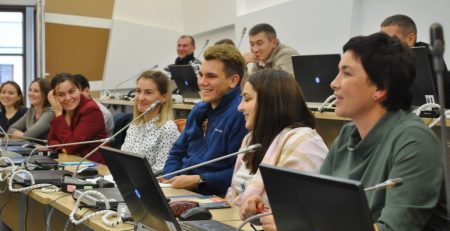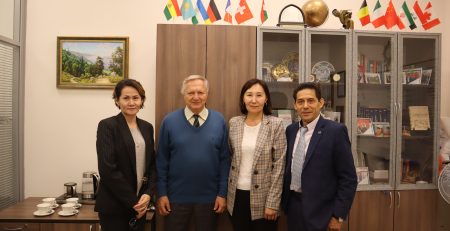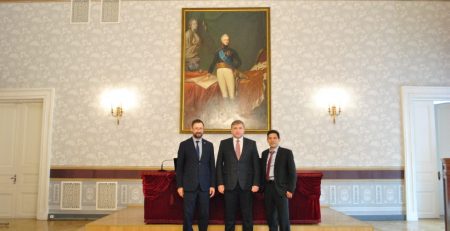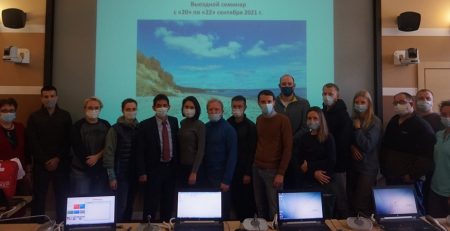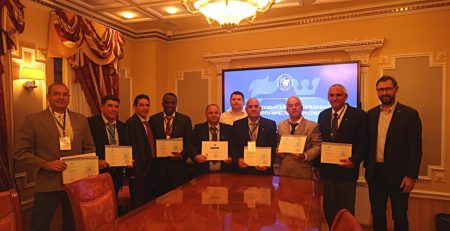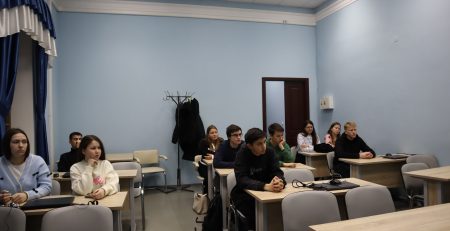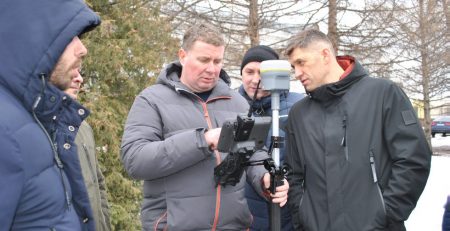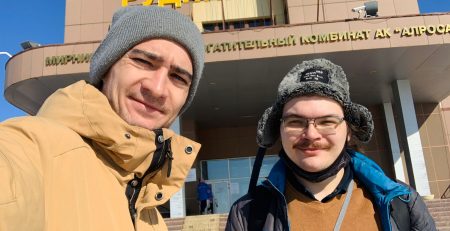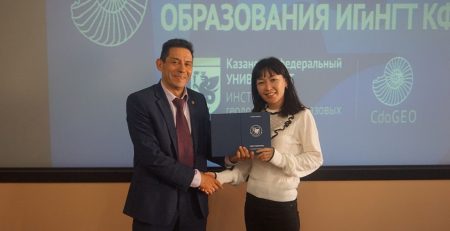Cooperation agreement signed with Russian Gas Society at 14th Saint Petersburg International Gas Forum
The large-scale meeting takes up October 7th to 10th.
The program includes more than 110 events, including conferences, roundtables, panel discussions, seminars, workshops, and exhibitions. It brings together 34,000 participants from 54 countries, including leading experts in the gas industry and related fields, representatives of federal and regional government agencies, and universities.
On the first day of the forum, a roundtable discussion, Geological and Geophysical Methods as a Tool for Solving Complex Problems at Different Stages of Field Life: Import Substitution and Personnel, was held. The discussion was moderated by Vladislav Sudakov, Deputy Director for Marketing at the Gazpromneft-KFU Center, and Azat Lutfullin, Deputy Head of the Field Development Department at Tatneft-Dobycha. Speakers included Danis Nurgaliev, Vice-Rector for Earth Sciences, and Ildus Chukmarov, Deputy Director for Continuing Education and Industrial Partnerships of the Institute of Geology and Petroleum Technologies.
The event discussed the application of various geological and geophysical methods at various stages of prospecting, exploration, and field development. Issues related to import substitution for geological exploration software and personnel training and retraining were also highlighted.
“The roundtable, organized by the Association of Geologists, Geophysicists, and Engineers, addressed current issues in geological exploration,” noted Dr Nurgaliev. “Russia is a vast territory. The methods currently used to prospect for and explore oil and gas deposits are very expensive and time-consuming. However, more modern methods exist. My presentation focused on robotic technologies developed at Kazan Federal University that use artificial intelligence algorithms for data processing.”
Ildus Chukmarov’s report was titled A Model for Training Modern Engineers and the Integration of an In-House System for Assessing and Developing Personnel at Oil and Gas Companies and Universities.
In the afternoon, on the sidelines of the forum, a cooperation agreement was signed between Kazan Federal University and the Russian Gas Society. The document was signed by Danis Nurgaliev and Nikolay Isakov, Vice President and Executive Director of the Russian Gas Society.
The agreement provides for long-term cooperation in research and education, with the goal of training qualified specialists for the oil and gas industry. It also outlines an interest in advanced training and professional retraining for managers and employees of gas companies.
“The agreement allows us to enter international educational markets. We will be able to share the technologies developed at KFU with students in various educational programs,” commented the Vice-Rector.
Throughout the day, KFU scientists held a number of business meetings. One of the participants was the Ambassador of the Islamic Republic of Mauritania to the Russian Federation Sidati Cheikh Ould Ahmed Aicha.
“Mauritania produces little oil, but the country has gold and uranium. The Ambassador proposed cooperation with KFU in geological exploration. He also stated that the country’s leadership is very interested in conducting environmental research and staff training. We agreed that representatives from Mauritania should soon visit the University. They plan to send their undergraduate and graduate students for training,” said Dr Nurgaliev.
The tagline of this year’s forum is Gas Market 2025–2035: New Shapes in a Transforming Environment. It is to be discussed at the plenary session on October 9th.

